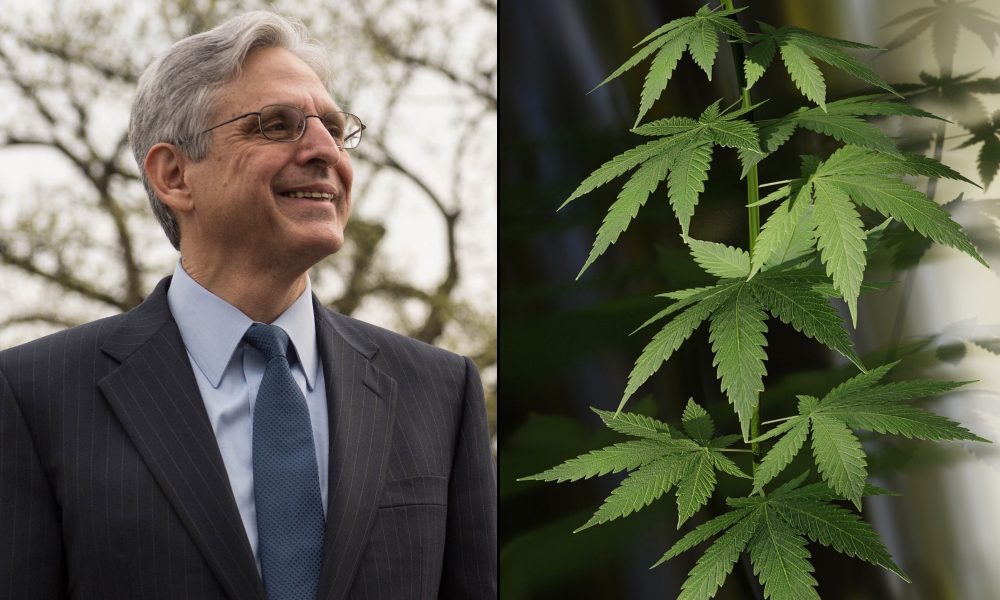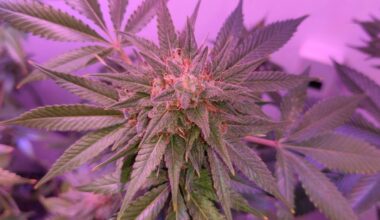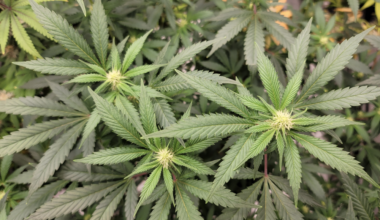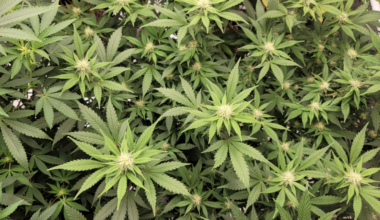U.S. Attorney General Merrick Garland says that the Justice Department is “examining” marijuana policy and will be addressing the issue “in the days ahead.”
The comments come in response to one of several questions that Sen. Brian Schatz (D-HI) submitted to the nation’s top prosecutor as a follow-up to a congressional hearing that was held in April.
The senator wanted to know whether DOJ intended to reissue Obama-era guidance to federal prosecutors on cannabis enforcement priorities, which generally urged discretion in marijuana cases in states and territories where the plant is legal, that was rescinded under the Trump administration.
Garland didn’t directly answer the question. Rather, he more vaguely revealed that “the Department is examining a range of issues that relate to marijuana and its production, sale, and use, and we intend to address these issues in the days ahead.”
He also reiterated that he feels that federal “enforcement resources are not put to their best use prosecuting nonviolent, low-level marijuana offenses, even in jurisdictions where marijuana use remains illegal.”
“With respect to those jurisdictions where marijuana use and sales are lawfully regulated, there is even greater reason to conserve prosecutorial resources so that we can focus our attention on violent crimes and other crimes that cause societal harm and endanger our communities,” he said in the response to Schatz, which was noted earlier by Politico.
In a related development, the White House drug czar also said this week that the Biden administration is “monitoring” states that have legalized marijuana to inform federal policy, recognizing the failures of the current prohibitionist approach.
Presumably, given Garland’s consistent stance on cannabis enforcement priorities, DOJ under Biden isn’t planning to change course and crack down on state-legal industries. But it’s unclear if the attorney general is hinting at plans to provide specific updated guidance on the issue that could give assurances to states that have opted to legalize.
President Joe Biden campaigned on a cannabis platform of decriminalization, rescheduling, respecting states’ rights and other modest reforms, though he remains opposed to adult-use legalization and has yet to take meaningful action on his prior pledges.
At the Senate Appropriations subcommittee hearing where Schatz first raised the question of a possible reissuing of the Cole or Wilkinson memos, Garland said that the Justice Department “has almost never prosecuted use of marijuana, and it’s not going to be.”
Marijuana prosecutions are “not an efficient use of the resources given the opioid and methamphetamine epidemic that we have,” he said.
Garland’s reaffirmation of the Justice Department’s discretionary enforcement protocol for marijuana at the hearing came on the same day that President Joe Biden made his first clemency action since taking office more than a year ago. The president granted clemency to dozens of people with non-violent federal drug convictions on their records.
Meanwhile, a bipartisan group of congressional lawmakers filed a bill in April that would direct the attorney general to create a commission charged with making recommendations on a regulatory system for marijuana that models what’s currently in place for alcohol.
Reps. Dave Joyce (R-OH), Hakeem Jeffries (D-NY) and Brian Mast (R-FL) teamed up on what’s titled the Preparing Regulators Effectively for a Post-Prohibition Adult-Use Regulated Environment Act (PREPARE) Act—an incremental reform meant to inform comprehensive cannabis policy changes in the future.
While Garland has made clear that he doesn’t feel it’s appropriate to federally prosecute people who use marijuana, he hasn’t acted on calls from certain lawmakers to initiate the process to decriminalize marijuana.
Meanwhile, efforts in Congress to end federal cannabis prohibition are ongoing.
In April, the House for the second time passed a comprehensive legalization bill, the Marijuana Opportunity, Reinvestment and Expungement (MORE) Act. On the Senate side, Majority Leader Chuck Schumer (D-NY) and colleagues are working to finalize similar legislation, which they plan to file ahead of the August recess.
High-level talks are reportedly underway for an alternative, and arguably more passable, approach, with bicameral and bipartisan lawmakers discussing the possibility of moving a package of incremental cannabis reform measures that would stop short of descheduling marijuana.
Separately, several Republican members of Congress introduced a bill last November to federally legalize and tax marijuana as an alternative to far-reaching Democratic-led reform proposals and scaled-down GOP cannabis descheduling legislation. The sponsor of that bill, Rep. Nancy Mace (R-SC), said she expects a committee hearing on her proposal.
Mace won her primary race on Tuesday, which advocates view as positive news, as it positions her to champion reform should Republicans win a majority in the House following the November midterm election.
Read DOJ’s response to Schatz’s marijuana guidance question below:
Medical Disclaimer:
The information provided in these blog posts is intended for general informational and educational purposes only. It is not a substitute for professional medical advice, diagnosis, or treatment. Always seek the advice of your physician or other qualified healthcare provider with any questions you may have regarding a medical condition. The use of any information provided in these blog posts is solely at your own risk. The authors and the website do not recommend or endorse any specific products, treatments, or procedures mentioned. Reliance on any information in these blog posts is solely at your own discretion.







